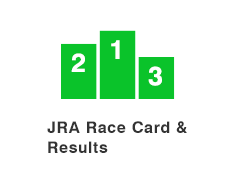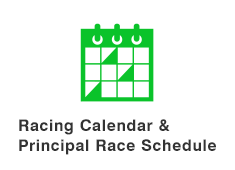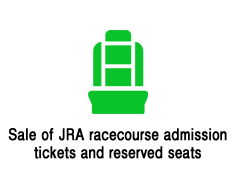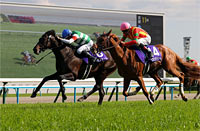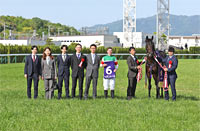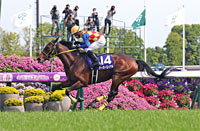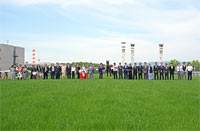2016 News
Data Analysis for the Tenno Sho (Spring)Upsets are frequent in a race to decide the strongest stayer Last year’s Tenno Sho (Spring) was won by the 2nd favorite Gold Ship, backed by win odds of 4.6-1. But the runner-up was the 7th favorite Fame Game (win odds 22.6) and 3rd place was taken by the 10th favorite Curren Mirotic (win odds 30.5), producing a massive Trifecta pay-off of 236,300 yen. Actually, the Trifecta pay-off in this race also exceeded 100,000 yen every year from 2009 to 2014. Of all the JRA G1 and J-G1 races held between 2009 and 2015, this is the only race in which the Trifecta bets have produced “100,000-yen tickets” every year. The Tenno Sho (Spring) covers the longest distance of any JRA G1 flat race, and as such, our attention should be focused not only on proven performers with strong pre-race billing but also on dark horses with strong aptitude for distance. This time, let’s analyze points shared by successful contenders in this race, based on results over the last 10 years. Main contenders come straight from the key trials Looking at aggregate performances over the last 10 years in terms of the runners’ most recent outing, we find that four G2 races – the Hanshin Daishoten, Nikkei Sho, Sankei Osaka Hai, and Kyoto Kinen – are the only ones to have produced more than one Top 3 finisher in this race. Runners coming straight from races other than domestic or overseas G1 and G2 races have struggled to make an impact, with a record of only [0-1-1-35] (Top 3 ratio 5.4%). This year too, we should have higher expectations of horses most recently seen in key trials. [Table 1] [Table 1] Performance by previous race (last 10 years)
Look for a strong performance last time out Of 30 Top 3 finishers over the last 10 years, 24 had finished “In the Top 3” in their previous race. Basically, the Tenno Sho (Spring) seems to favor runners with strong performances in their most recent outing. [Table 2] [Table 2] Performance by finish in previous race (last 10 years)
Moreover, no horse with a finish of “4th or lower” last time out and no experience of a Top 3 finish in JRA G1 races has won this race in the last 10 years; runners in this category have achieved a paltry Top 3 ratio of 4.4%. We should perhaps lower our expectations of horses with no experience of an upper placing in G1 races and a less than impressive performance last time out. [Table 3] [Table 3] Performance of horses finishing "4th or lower" last time out, by experience of Top 3 finishes in JRA G1 races (last 10 years)
Experience of G1 races since the previous year is important Of 30 Top 3 finishers over the last 10 years, 25 had experience of running in JRA G1 races since the previous year. On the other hand, horses without this experience have amassed a Top 3 ratio of only 8.1%. Actually, horses without this experience have fared even worse since 2010, returning miserly figures of [0-1-0-35] (Top 3 ratio 2.8%). We should discount runners that have no G1 racing experience, or have gone more than a year without contesting a G1 race. [Table 4] [Table 4] Performance by experience of JRA G1 races since the previous year (last 10 years)
In fact, horses with experience of a Top 2 finish in JRA G1 races since the previous year have amassed really excellent figures, including a Top 3 ratio of 48.3%. We should have high expectations of runners with experience of vying for the top spot in G1 races since the previous year. [Table 5] [Table 5] Performance by experience of Top 2 finish in JRA G1 races since the previous year (last 10 years)
Keep an eye on “7-year olds and up” and “4-year olds” Viewing performances by age over the last 10 years, no horse aged “7 and up” has won this race in that time – the Top 3 ratio of runners in this category being only 6.1%. We should perhaps lower our expectations of significantly older horses. [Table 6] [Table 6] Performance by age (last 10 years)
Again, if we narrow our focus to horses with no experience of a Top 2 finish in JRA G1 races since the previous year, we find not only that “7-year-olds and up” have struggled, with a Top 3 ratio of only 2.3%, but also that “4-year-olds” have not achieved a single win and have produced poor performances including a Top 3 ratio of only 6.9%. It would seem a good idea not to overestimate 4-year-olds without experience of challenging to win a G1 race since the previous year. [Table 7] [Table 7] Performance by age of horses with no experience of a Top 2 finish in JRA G1 races since the previous year (last 10 years)
Check runners in “bracket No.1” Turning to performances over the last 10 years by bracket number, the highest Win ratio, Top 2 ratio and Top 3 ratio all belong to horses starting in “bracket No.1.” In 2015, not only did the winner Gold Ship start as horse No. 1 in bracket No.1, but Curren Mirotic also finished 3rd as horse No.2 in bracket No.1. Again, the 2012 winner Beat Black (14th favorite with odds of 159.6) was also horse No. 1 in bracket No.1. Given that this is a long haul race at 3,200m, runners in bracket No. 1 may have an advantage because it offers greater potential for staying the course on the inside, thus minimizing course loss. [Table 8] [Table 8] Performance by bracket number (last 10 years)
Seek out the winner! All of the last five winners started in bracket numbers “1-4” and had also experienced Top 3 finishes in JRA G1 races. Other features shared by these five are that their previous outing was a JRA G2 race, they had finished 7th or higher in a JRA G1 race since the previous year (four of them experiencing a Top 2 finish), and that they were aged “6 or lower.” Our focus should be on the bracket number and record in G1 races, as well as the trends highlighted in Table 1, Table 4 and Table 6, in particular. [Table 9] [Table 9] "Bracket No.", "Highest finish in JRA G1 races", "Previous race" "Highest finish in JRA G1 races since the previous year", and "Age" of winning horses (last 5 years)
(Masaya Ibuki) |
|






